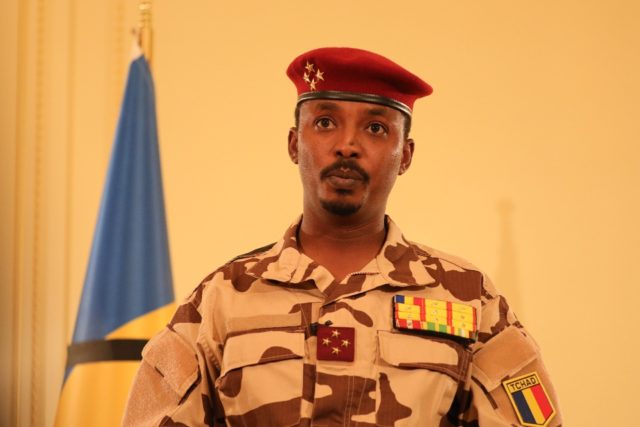General Mahamat Idriss Deby Itno, whose plans for shaping the future of Chad enter a key phase on Saturday, has faced a mountainous challenge since he took the country’s helm last year.
On April 20, 2021, the army went on television to announce the death in combat of Idriss Deby Itno, Chad’s iron-fisted president for the past 30 years.
Mahamat, his son and political heir, looked shy and nervous in his military uniform.
The 37-year-old soldier had already been catapulted by his father to the rank of four-star general, but was a political newbie.
Now he had been proclaimed head of a junta that dissolved parliament and suspended the constitution — a move that would last for 18 months until “free and democratic elections” could be held.
Today, the younger Deby smoothly plays the part of self-assured leader, but one who also follows a trail set down by his father.
Like his forebear, he strikes a martial pose in his appearances at home or abroad. Western leaders look to him for assurances that Chad will remain a sturdy ally in the fight against jihadism in the Sahel.
In his early months in power, Deby was rarely seen out of uniform, his head adorned with the red beret of the elite presidential guard that he commanded under his father.
Already a four-star general who had won plaudits for fighting a rebel offensive in the east of the country in 2009, he pinned on a fifth star in December.
After a while, Deby was increasingly seen in traditional headdress and flowing robes, or a finely-tailored suit with gold-rimmed glasses on his nose — a less aloof civilian image that his father also favoured.
Paternal template
Opinions of the younger Deby’s character vary.
Some observers say he is taciturn and secretive while others say he is striving to establish his authority.
But there is also broad agreement that his template is his father.
Mahamat Deby “consolidated his power base by surrounding himself with the old guard”, says Thierry Vircoulon at the French Institute of International Relations (IFRI) think-tank.
“There is real continuity between father and son. The Deby system is still in place.”
In 1993, the older Deby launched a national conference to set up state institutions after a period of transition.
Today, his son seeks to do something similar with an “inclusive national dialogue” that will be launched on Saturday among 1,400 delegates, including representatives of many armed groups. Its declared goal is to agree a pathway towards elections.
“Mahamat has the same desire as his father, to show a semblance of dialogue with the opposition,” said Kelma Manatouma, a Chadian analyst who also noted that the tactic did not unlock “the expected results” in the past.
To shore up his power, the elder Deby relied on his ethnic group, the Zaghawa, a small minority in Chad, entrusting them with key positions in the army.
Mahamat, through his mother, is half Gorane, which is often a rival or even enemy ethnic group, but he too relies on his father’s clan.
“It is always the same group who are in power, the Zaghawa core,” said Roland Marchal, from the Centre for International Research (Ceri) in Paris.
More tolerant?
Some observers point to differences between father and son in how they exercise power.
Unlike Idriss Deby, who forbade any demonstrations, Mahamat Deby “leaves a small space for opposition to be expressed”, said Marchal.
Seeking to push ahead with his national forum, the new strongman arranged a “pre-dialogue” in Qatar with rebel groups that his father had fought for years.
He reached out to rebel leaders — including his own cousin, Timan Erdimi, also an ethnic Zaghawa, who had repeatedly tried to overthrow his late father — inviting them to join the dialogue.
“He is less impulsive than the father, calmer — he listens more than he speaks,” says a close adviser, speaking on condition of anonymity.

COMMENTS
Please let us know if you're having issues with commenting.